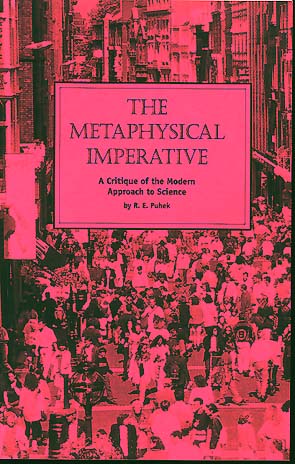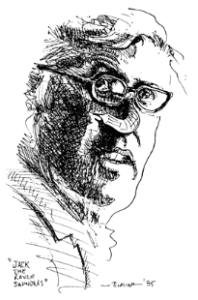Neotony in Humans
I recently noticed a few remarks about human babies by educated
people that caught my attention.
The remarks go along the lines of:
“Human babies are born too early. That’s why humans have evolved
larger brains. So that they can survive with un-ready babies.”
“Human babies are so weak. They’re the laughing stock of the animal
kingdom. We’re so helpless when born. It’s like we’re rejects of evolution.”
Now, many of us have perhaps wondered why humans are born
so weak. Or have been amazed at how newborn animals can run in
an hour and defend themselves at a very early age, etc.
Well, I’m not sure what to conclude about this whole topic, but I detect
some pseudo-science religion run amok in the overall approach to it.
There’s possibly some insight to be gained here. But I don’t see anything
of value to the contemporary commentary. In the typical modern approach
I see quite a bit of anti-human cynicism which is blind to the obvious.
I would suspect that humans are born ‘weak’ because we are
fundamentally different from all other animals. We aren’t weak at all—in
that way. That way is of no importance to us. We’re different.
We’re meant for other things. For instance:
*Humans can readily develop and increase in skills for 80 years and more.
*Human gestation seems plenty long enough. Thus the purpose of the result
of a human birth must NOT have very much to do with prompt self-sufficiency.
*Humanity is ABOUT physical frailty and incompleteness. We MUST
augment ourselves with continuous innovations, tools, skills, knowledge
and integrated inner (psychic) growth if we are to compete.
*The human paradigm is very different from that of animals.
Animals are generally ‘done’ quite promptly and cannot wander
over a few percentage marks afield of average specie type.
A young deer is very much like any mature deer. A young frog
even more like a mature frog in behavior and function in its
ecosystem.
****
I think that Malcolm McMahon wrote here recently to the effect
that human lifelong learning potential might be due to neoteny.
—The evolutionary loss of adult features in preference for juvenile ones.
This issue refers, I think, to such things as the long feebleness and
development of human babies compared with animals. Aspects get
mentioned such as species keeping more infant-looking flatter faces.
That this explains much about domestic dogs. That we freeze the
development of dogs to suit our needs. Examples of some primitive
organisms are given, certain salamanders and wasps.
Obviously, I’m still a bit in the dark on the topic.
I would think that human lifelong learning would be due to
the maximal possible MATURITY of any given human. That their
furthest possible development is what would allow their greatest
possible understanding, judgement, conclusions, insights, etc.
They say that babies learn a huge amount at certain young ages.
This is a certain KIND of learning. Quantity. But it seems like
there’s a KIND of learning where the discovery of only one fact could
surpass this bulk in value by anyone’s standard. Doesn’t seem like
the realm of youth to me.
I’m not sure how the dog thing washes out. Dogs are pack animals.
We become their alphas. The result is perhaps that the most mature
possible canine would work best with a human. Dog packs are already
very particular in nature: they key off their alpha and their location
as to their behavior. Is an undomesticated wolf more skilled,
complex and mature than an elite bloodhound? Now, a bloodhound
appears to lead a simpler, ‘dumber’ life of slavishness. What canine
isn’t slavish to its pack? Is the subtlety and development of the
bloodhound higher or lower than the natural wolf skills? Are we
freezing the development of dom-dogs, or perhaps is there a chance
that we’re helping them, pushing them, like coaches, giving them
the security to advance far past what a wild dog could hope to do. ?
There’s something they bring up also about Jackal Theory. And Littoral Ape Theory.
As what provides clues to the history of Man.





